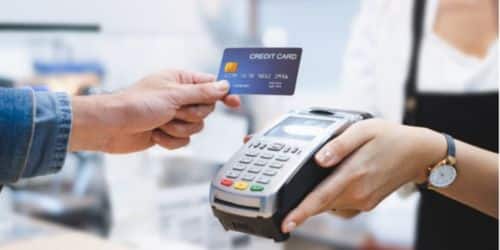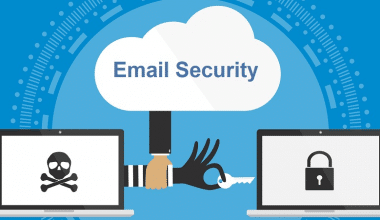It’s crucial to carefully choose the best card for bad credit for you because most secured and unsecured credit card made for people with bad credit is frequently loaded with fees and exorbitant APRs. People with low credit scores (between a 300 and 579 FICO score range) can gain advantages from using a card made just for them. We’ve put together a list of the top credit cards for people with bad credit to make it simpler for you to find one that meets your needs.
Bad Credit Card
A conventional card with special features designed for people with bad credit is known as a bad credit card. Secured credit cards include some of the best options for people with poor credit. In addition to requiring a security deposit as collateral for the credit line on your card, these cards typically have lower fees than unsecured credit cards for people with bad credit. Your credit score can rise with responsible card use, putting you in the running for an unsecured card with a top-notch rewards program.
Only two types of credit cards are available to people with bad credit. The first is secured credit cards. These cards act like standard, unsecured credit cards, except that you have to submit a refundable security deposit before your account can be opened. The other type is unsecured credit cards for those with bad credit.
These cards don’t require the payment of a security deposit, but they do have other costs. Because of the higher risk associated with borrowers who have bad credit, most of these cards will have a higher interest rate and higher annual fees compared to cards marketed toward those with higher credit scores
The best option for those with poor credit is typically secured cards. These credit cards demand a security deposit, frequently $200, which serves as your credit limit. Your credit score can start to rise if you use your secured card responsibly by making on-time, full payments monthly.
When you use one of the best credit cards for people with bad credit responsibly—by paying your bills on time and keeping your balance low—you can raise your credit score. However, let’s start by outlining how these cards function and what you can anticipate as a cardholder.
Tips for Building Credit With a Credit Card
- Pay all of your credit card bills on time.
- Ensure none of your cards are maxed out.
- Reduce your card balances if you are using more than 30% of your available credit.
- Close card accounts only if they have annual fees you’re no longer willing to pay, are secured by a deposit, or if your credit has sufficiently improved to qualify you for an unsecured card.
Secured Bad Credit Card
A secured credit card needs a down payment of cash to protect any purchases you make with the card. The card company has the right to take money out of your deposit if you miss a payment. Depending on how consistently you pay your balance over time, some secured cards can be changed into unsecured cards. Your deposit should be completely refunded to you once you convert your card.
Certain secured credit cards charge an annual fee. Most don’t. While some include a rewards program with cash back. Some don’t. Some impose higher fees and annual percentage rates (APRs). Again, though, some do not. Some secured cards provide APRs that are significantly lower than those of unsecured cards.
#1. Discover it Secured Credit Card
We recommend this card for those who need to rebuild their credit because it offers an unlimited 1% cash back rate on all purchases in addition to 2% cash back at gas stations and restaurants on up to $1,000 in combined purchases each quarter, no penalty APR, and no annual fee. Users get a nice extra matching cash-back bonus at the end of the first year.
For people without credit histories, one of the best options is the Discover it® Secured Credit Card. Beginning after seven months, Discover will review your account to see if you meet the requirements for an unsecured credit card and can receive your security deposit back.
The provider does not charge an annual fee, making it an affordable choice for those looking to start establishing credit. However, there is a $200 minimum security deposit requirement; some secured cards have lower minimums.
Although lower than other secured cards, its 27.74% Variable APR is still higher than the national average. Balance Transfers with a 6. month introductory APR of 10.99%
#2. Capital One Quicksilver Secured Cash Rewards Credit Card
Capital One Quicksilver Secured Cash Rewards Credit Card Receive automatic consideration for a larger credit line in as little as 6 months without requiring a bigger deposit. You can receive an unlimited 1.5% cash back on all purchases with no annual or other hidden fees. You can get a $200 initial credit line by putting down a $200 refundable security deposit. The annual fee is $0 When it comes to credit cards for people with bad credit, Capital One Quicksilver Secured Cash Rewards Card stands out because it provides good rewards, a 29.99% Variable APR, and several other features that are perfect for people with bad credit (FICO scores of 629 or lower).
#3. The Chime Credit Builder Visa Card
There is no minimum security deposit needed, no annual fees or interest, and no credit check is necessary to apply. The card is backed by money in a linked account that you can add to at any time, so there is no need for a security deposit. The card will not let you spend more than you have available on your account, and you can set up automatic withdrawals of the required amount from your account when they become due.
It functions somewhat similarly to a prepaid debit card, but unlike a prepaid one, it aids in credit building. Applying does not require a credit check. Due to the lack of a minimum deposit requirement, an annual fee, or interest charges, the Chime Credit Builder Visa® Card allows you to automate your payments so that you never miss a payment. However, you must use Chime banking to obtain it.
#4. Self-visa Secured Card
With a $25 annual fee, the Self Visa® Secured Card, people with bad credit or no credit can take advantage of a special opportunity to build credit. It does not demand an upfront security deposit or a credit check, in contrast to typically secured cards. However, it does impose additional requirements on you that other secured cards do not.
This card asks you to open a Self Credit Builder Account and make consistent payments on a secured installment loan rather than requiring a traditional deposit. Your payments essentially go into a savings account; once you have enough saved up with Self, you can use that money as a deposit on the card.
Just $100 is required as a deposit, which is less than the majority of secured cards. Additionally, there is no credit check. On the other hand, there are two fees: a $9 one-time setup fee and a $25 yearly fee. Opening the Credit Builder Account, making payments, and then funding the card deposit is a difficult process. But it might be worthwhile for those who are having trouble building credit.
#5. Capital One Platinum Secured Credit Card
The Capital One Platinum Secured Credit Card is a great place to start repairing your credit if it is tarnished but not necessarily destroyed. A deposit equal to your credit line is typically required for secured cards, and you must pay the entire deposit upfront. For a deposit of $49, $99, or $200, however, you can apply for a Capital One Platinum Secured Credit Card and receive a credit limit of $200. Alternatively, you may pay your deposit in installments. Furthermore, in as little as six months, you could automatically qualify for a higher credit limit without making a separate deposit. Those whose credit has been severely harmed, such as those who have bankruptcy on their credit report, may not be eligible. An account, either checking or savings, is required.
#6. The OpenSky Secured Visa Credit Card
For those who are having trouble establishing or rebuilding their credit as well as for those without access to conventional banking services, the OpenSky® Secured Visa® Card is a solid choice. The OpenSky® Secured Visa® Card doesn’t conduct a credit check, unlike the majority of other secured cards, making it possible for individuals with severely damaged credit to be approved. (You must still meet the required income requirements.) The following further distinguishes this card from other secured cards: A bank account is not necessary. You can use a debit card, wire transfer, check, money order, or check to pay your deposit and bills. But, The card charges an annual fee of $35. And 22.14% Variable APR. Additionally, there are only a few ways to convert your account to an unsecured card.
#7. The OpenSky Plus Secured Visa Card
The OpenSky® Plus Secured Visa® Credit Card is similar to the regular OpenSky card in that it does not require a bank account or a credit check. Additionally, there is no annual fee; however, the minimum security deposit and interest rate are both much higher. Similar to the OpenSky card with an annual fee, the following advantages are also available: The issuer doesn’t perform a credit check, and you can pay your bills and make deposits using a debit card, wire transfer, check, or money order. This makes it an option for people without a traditional bank account. Furthermore, there is no annual fee. But In comparison to OpenSky’s standard card, this card requires a minimum security deposit of $300, which is an increase of 50%. The APR is also considerably higher, so avoid carrying a balance. Additionally, you have a few options for switching to an unsecured card.
Bad Credit Card Unsecured
Any card that doesn’t require a cash deposit is considered unsecured. For this kind of card, your credit rating typically needs to be excellent, good, or fair. Poor credit unsecured cards typically have high APRs and fees to make up for the higher risk to the card issuer.
Most unsecured credit cards have variable annual percentage rates, which means that your interest will fluctuate in line with the Federal Prime Rate. Fix-rate APR cards are uncommon and are typically linked to secured accounts or cards issued by credit unions.
#1. Petal 1
Unsecured credit card for consumers with poor credit due to the way it combines several useful features. Its annual fee and lack of foreign transaction fees are first-rate features for people with poor credit. It also offers cash back for purchases from select local and national merchants. The credit limit for applicants should be between $300 and $5,000, which is high for cards of this kind.
#2. Credit One Platinum Visa For Rebuilding Credit
With its Platinum Visa For Rebuilding Credit, issued by CreditOne Bank, which specializes in providing unsecured credit cards to applicants with poor credit, eligible purchases are eligible for 1% cash back rewards. Gas, groceries, mobile and internet services, cable and satellite TV services, and shopping for other qualifying items are all acceptable forms of payment. But there is an annual fee for this card—$75 the first year, rising to $99 the following year—that is charged at an $8.25 per-month rate. However, you might be approved for a card for people with fair credit within a year if you make on-time payments and have little debt.
#3. Tomo
Another provider that doesn’t use a standard credit score to determine whether to approve an application is Tomo Credit. It is possible to offer applicants with poor credit a card without an annual fee because of this, among other things. Tomo, on the other hand, doesn’t charge interest but does require you to link your bank account and enable autopay. In other words, it’s not a card for people who need to borrow money. There’s no annual fee for this card.
The Tomo credit card can provide limits of up to $10,000 because it accepts applicants based on factors other than a traditional credit score. Just keep in mind that autopay and linking your bank account are both requirements for using Tomo, which does not charge interest. However, if you have a sizable balance in your bank account, the credit limit on this card may be high. This card doesn’t charge an annual fee.
How to Select the Best-Unsecured Card for Bad Credit
You should carefully examine the costs first. These unsecured credit cards frequently have exorbitant annual fees, and some might even charge for applications. Foreign transaction fees, extra cardholder fees, and balance transfer fees are additional costs to be aware of.
Next, confirm that this card is intended for those with poor credit. Some cards are more suitable for people with poor credit than for people with good credit. The best card in the world, however, won’t help you if you can’t meet the requirements.
Pay attention to the card’s standard interest rate as well. When you’re working to repair your credit, you should make every effort to pay off the entire balance on your statement each month to avoid interest and debt. However, if you must carry a balance, you should look for a card with a manageable interest rate. However, if your credit is bad, you shouldn’t anticipate being approved for a card with a low-interest rate.
What Is the Easiest Card To Get With Bad Credit?
Since secured credit cards need a refundable security deposit to protect the issuer, they are the easiest to get when your credit is poor or nonexistent. When it comes to cards, the Discover it® Secured Card is among the best options available.
Can I Get a Card With Bad Credit?
Yes. There are numerous credit cards available that are made specifically for those with bad credit. Some of these cards are secured cards, while others are regular credit cards that you can use without putting down a deposit. Most likely, lenders will present you with credit cards with a comparatively high APR.
What Kind of Card Can I Get With Bad Credit?
When you pay your bills on time and maintain a low balance to your credit limit, these offers can help you raise or restore a low credit score. To apply, many don’t ask for a deposit. Some of these cards have security features, while others don’t. There are numerous credit cards available for people with bad credit, including business cards, student cards, store cards, and even cash rewards cards.
Can I Get a Card With a 250 Score?
Yes. Although you can still apply for a credit card even with bad credit, you should make sure it’s the right card for your needs. Even though credit cards come in a variety of forms, each serves a particular function. There are credit cards that permit interest-free purchases, cashback, and balance transfers with 0% interest rates.
Can I Get a Card With a 524 Credit Score?
A 524 credit score won’t blow any lenders’ socks off, but it also shouldn’t disqualify you from receiving a credit card or loan. Yes. When a customer’s credit score is below 500, some card issuers will give them an unsecured card, but they will charge exorbitant fees and interest rates. Furthermore, it will be challenging to get accepted for an unsecured credit card. Getting a card is possible, even if your credit score is extremely low or nonexistent.
What Is the Quickest Credit Card to Get?
The simplest type of credit card to get is a secured one, such as the Blue Cash Preferred® Card from American Express, which is perfect if your credit history is bad or nonexistent.
Is a 500 Credit Score Bad?
Your score falls within the Very Poor category, which includes scores between 300 and 579. A FICO® Score of 500 is considerably lower than the national average. Because they have a poor credit history, many lenders decide not to work with borrowers whose scores are in the Very Poor range.
How Fast Can I Rebuild My Credit?
If you follow the right steps, the short answer is that it typically takes at least a year to repair bad credit. However, everything is dependent upon where you start, how long your credit history is, and the decisions you make moving forward. Using your card and making on-time payments each time will help you establish credit. Pay off your balances in full each month to avoid paying finance charges. In addition to helping you avoid exceeding your credit limit, paying off your balance each month can help you establish better credit than carrying a balance. Typically, it takes at least six months.
How to Rebuild Credit From $500?
- Timely payment of bills
- Keep Your Credit Utilization Ratio Low
- Consider a Secured Credit Card
- Avoid closing out-of-date accounts.
- Pay off your credit card debt.
- Budget your spending
- Avoid opening unauthorized credit cards
- Refute any errors found on your credit report.
Conclusion
You fall under the “bad credit” category if your credit score is under 580. You’ll probably have trouble getting approved for a card if your income falls within this range. If you use both kinds of credit cards sensibly, they can both aid in credit repair. This entails keeping up with your bill payments and having little to no debt. In contrast to revolving credit cards, secured credit cards require a refundable security deposit before your account can be opened, and annual fees are less typical.
Related Articles
- BAD CREDIT CARDS: Top Secured & Unsecured Bad Credit Cards
- What is A Secured Credit Card? Detailed Guide
- BEST CREDIT CARDS FOR BEGINNERS 2023 (Updated)
- BAD CREDIT CARDS WITH HIGH LIMITS 2023
- ONLINE LOANS FOR POOR CREDIT: Top Easy Personal Loans With Guaranteed Approval






